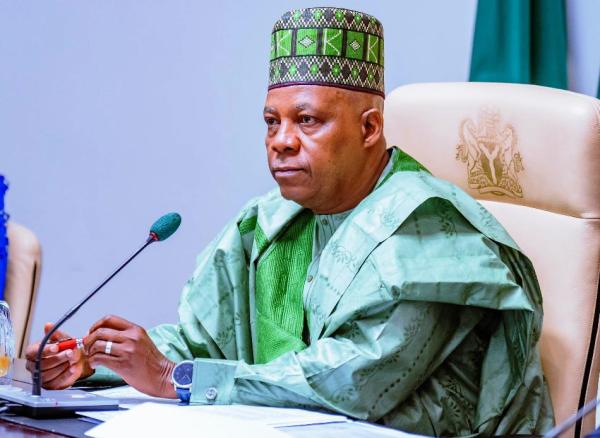At the 98th Annual National Conference of the Pharmaceutical Society of Nigeria (PSN)—DABO 2025—held on Wednesday, November 5, 2025, the Convocation Hall of Bayero University, Kano, hosted a highly engaging Plenary Session centred on transforming Nigeria’s pharmacy workforce and strengthening the nation’s pharmaceutical ecosystem.
The conference themed “Pharmacy Forward: Building a Future-Ready Workforce for Performance, Collaboration, and Transformation”—brought together pharmacists, researchers, industry leaders, academia, policymakers and members of key health organisations.
The subtheme for the plenary was “Restoring Sustainable Access to Safe, Effective and Affordable Medicines as a Major Element of Health Transformation in the Pharmacy Ecosystem.”
The session was chaired by Alhaji Mohammed Yaro Budah, a past President of PSN, while Pharm. (Sir) Anthony Bola Oyawole (A.B.O.), Treasurer of the Nigerian Academy of Pharmacy and past Chairman of PSN Lagos, served as moderator.
Opening the session, Alhaji Yaro Budah described the topic as one that remained deeply relevant to the profession. “This topic isn’t new to us. We will be talking about how to restore and sustain the system—perhaps exploring contemporary methods, including digital innovations like drone delivery. Our speakers will do justice to the discussion,” he said.
In his moderating remarks, Pharm. Oyawole emphasized the urgency of confronting long-standing weaknesses in the pharmaceutical distribution chain. “This conversation is central to the future of pharmacy practice in Nigeria. Today’s dialogue gives us an opportunity to look critically at gaps and outline sustainable pathways for quality medicines to reach the public,” he noted.
The lead speaker, Pharm. Funso Fakulujo, Chairman of the ACPN Regulatory Advisory Committee, delivered a paper titled “Enhancing Inspection, Monitoring and Regulation of Pharmaceutical Premises in Nigeria,” with emphasis on wholesale operations.
He opened with a call to restore the integrity of pharmaceutical practice: “As the conference theme says, we want pharmacy to move forward—towards transformation. This can only be effectively realized when regulators like PCN and NAFDAC lead the process. Years ago, wholesale practice adhered to ethical standards, but that history has changed.”
He traced the evolution of regulatory controls from the introduction of location approval and audit trails in Lagos State in the early 1990s to their legal incorporation by 2005. Fakulujo highlighted the proliferation of non-pharmacist-owned wholesale premises and unhealthy practices that undermine community pharmacies:
“More than 95% of non-pharmacist owners of wholesale premises are involved in retailing directly to patients, contrary to pharmacy law. We also have concentrations of wholesalers in regions without regard for the number of retailers.”
He further condemned the practice of some medical professionals running unregistered wholesale establishments that double as consulting clinics—without superintendent pharmacists. Fakulujo recommended stricter enforcement by the Pharmacy Council of Nigeria (PCN), including mapping exercises to identify the appropriate distribution of premises, and the design of official banners clearly stating that wholesale premises are not licensed to retail to the public.
Panel Contributions
Speaking on behalf of Dr. Omokhudu Idogho, Managing Director of the Society for Family Health (SFH), Pharm. Sebastine Ikejide highlighted the need for regulatory alignment: “We need stronger policy coherence among PCN, NAFDAC and other agencies responsible for the supply chain. The full implementation of the National Drug Distribution Guideline (NDDG) will significantly strengthen regulation at the wholesale level.”
Pharm. Ogbeneochuko Omaruaye, National Chairman of the Pharmaceutical Wholesalers and Distributors Association of Nigeria (PWDAN), delivered a strong advocacy message, describing inspection and monitoring as central to medicine quality.
“The situation where wholesalers are almost at par with retailers arose from attempts to regularize non-pharmacist retail owners. We at PWDAN do not engage in retail. Regulators need to correct the distortion,” he stated.
He called for benchmarking Nigeria’s wholesale standards against international best practices, insisting that wholesalers should have a minimum of 1,000 square metres of operational space. “Let the PCN, NAFDAC and PSN study what PWDAN is doing, and make it the baseline for anyone intending to venture into wholesale practice,” he added.
From the perspective of the northern drug market, Pharm. Tukur Ibrahim of the Kano Medical Store urged closer collaboration between PCN and established drug service agencies.
“In Kano drug market, an agency services over 1,000 drug facilities across primary and tertiary levels. PCN should engage such agencies for manpower support to strengthen monitoring. Let us return to the NDDG.”
Participants took turns sharing comments, seeking clarifications and presenting recommendations. The panelists addressed questions ranging from regulatory enforcement to supply chain integrity and inter-agency collaboration.
In his final remarks, the session chairman, Pharm. Yaro Budah, commended the speakers and panelists for their depth of insight and the clarity they brought to the long-standing regulatory challenges confronting the sector.
He described the session as “a meaningful step toward rebuilding a safe, ethical and future-ready pharmaceutical distribution system in Nigeria.”






















